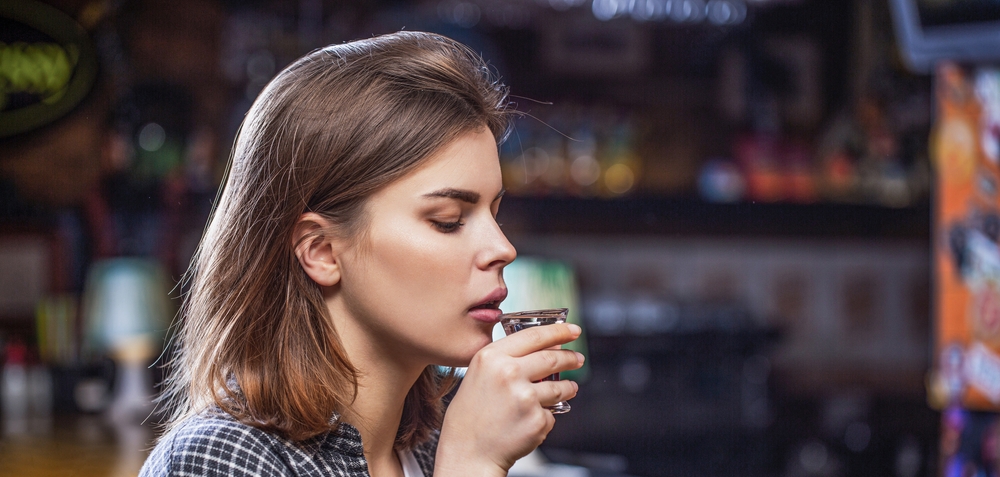
22 Oct Young people and alcohol: Know your facts and stay in control
Research shows that many young people have tried alcohol. Being curious is how many teenagers and young adults find out about what they do and don’t like. It’s important to point out though, that the relationship with drinking needs to be a healthy one for many different reasons.
Having a healthy relationship with alcohol
Knowing the facts when it comes to young people and alcohol should help you to make informed decisions that support your health and help you to stay in control.
While alcohol as a subject wouldn’t necessarily be an expected topic for teenagers, the facts show that it needs to be talked about.
There is evidence that drinking at a young age, especially heavy drinking, can result in physical or mental health problems. Alcohol can impair brain development, put young people at risk of alcohol-related injuries, is associated with poor performance at school, behavioural problems and unsafe sexual behaviour.
“Sorry, there´s no magic bullet. You gotta eat healthy and live healthy to be healthy and look healthy. End of story.”
Morgan Spurlock
Young people and alcohol: The facts
The latest figures around drinking in young people in the report by the NHS ‘Smoking, Drinking and Drug Use Among Young People in England 2018’, show that 66 per cent of 15 years olds reported drinking at least ‘a few times a year’, while 14 per cent said they drank alcohol every week. Just over half of 15 year olds (52 per cent) believe that most people their own age drink alcohol.
Why do young people drink alcohol?
The most commonly held belief among young people (74 per cent) was that their classmates drank alcohol ‘to look cool’ in front of their friends, while 62% per cent said they were pressured into drinking. A total of 61 per cent said they drank to be more sociable, while 60 per cent said they drank because it gave them a buzz.
The report also stated that most teenagers did not buy alcohol and were given it by family or friends. In fitting with this, most young people had drunk alcohol at home – or in somebody else’s home.
Of those questioned, nine per cent said they’d been drunk in the previous four weeks, including 6 per cent who said they’d been drunk at least once or twice in the last week. Girls were found to be more likely to have been drunk in the last month than boys, with 22% of 15 year olds saying they had been drunk in the last month.
And what were they drinking? For boys the choice was beer, lager or cider while girls were more likely than boys to have drunk spirits, alcopops, wine, Martini or sherry – the latter two indicate being taken from home.

Short-term effects of teens drinking alcohol
But what are the effects of drinking alcohol on teenagers? In the short-term, one of the most common consequences is feeling sick or actually being sick. Having an argument was reported as another short-term problem, along with damaging clothes, shoes or accessories – or losing money or other items.
Anyone, at any age, who drinks a lot in a short space of time is at risk of not just being seriously ill for a few hours but could even suffer alcohol poisoning. When the level of alcohol in your bloodstream gets so high it can seriously affect the parts of your brain that control balance and speech. The result is that you fall over, start slurring and can’t get your words out.
Alcohol affects the nerves that control your breathing and your heartbeat. In extreme cases this could cause you to pass out and have long-term breathing impacts. Drinking alcohol can lower your body temperature, leaving you susceptible to hypothermia. It can also cancel out your gag reflex so that if you were sick, you’d be at risk of choking on your own vomit, which could be fatal.
The report also states that in 2018 there were nearly 5,000 admissions of children under 16 into hospital A&E related to alcohol. That’s a lot of young people going too far with alcohol!
“Ignorance is a lot like alcohol: the more you have of it, the less you are able to see its effect on you.”
Jay Bylsma
Long-term effects of teenagers drinking alcohol
As well as the risk of suffering a long-term injury from a fall, there’s also a risk of harming the development of the brain.
As a teenager’s brain is still developing, alcohol can actually affect memory function in the longer term, including reactions, learning ability and attention span. All these are incredibly important when you’re still at school.
The evidence also says that young people who start to drink by the age of 13 are more likely to go on to have worse results at school. They’re also the ones likely to be skipping school. In the worst case they may be the ones who get permanently excluded from school.
Underage drinking and mental health
Drinking does affect your mental health and there are enough challenges with mental health as it is without making it worse through getting drunk. Worryingly some young people even say they drink to forget their mental health problems, with 43% of young people reporting that they’re drinking to cope in some way.
The evidence also points to alcohol misuse and mental health problems being closely related. So drinking is actually likely to make it worse, not better.
Risky sexual behaviour
Alcohol lowers your inhibitions and can lead you to take risks that you normally would not. Among the things you could find yourself regretting are having sex with someone, getting pregnant from unprotected sex or catching a sexually transmitted disease (STD). The very worst case scenario is being raped, getting pregnant and getting an STD. The long-term consequences can be unbearable to even think about.
Impacts of drinking on the health of young people
Drinking alcohol can severely impact your risk of developing liver disease – and it’s not just older people who can be affected. You may feel invincible, but there is proof that young people who drink regularly are starting to damage their liver without realising it.
The warning signs will not show up straight away and it could take a couple of years but there are people in the UK dying with alcohol liver disease, who are only in their 20s.
This is not supposed to a lecture in avoiding alcohol but a warning to be aware and be careful. It’s far better and safer to enjoy a sociable drink and be a little tipsy happy instead of blind drunk and cringing the next day when you hear what you got up to.
Be safe, not sorry and, even better: get high on happiness, not alcohol. Drink occasionally, drink socially but know your limits. And remember, it’s OK to go out and not drink, you don’t need to be pressured into it.
“A fit, healthy body – that is the best fashion statement”
Jess C Scott
Choose the life you want to lead
If you are drinking to self-medicate, forget your problems or to get to sleep then do come and talk to us at Back on Track Teens, or speak to someone else who will not judge you, but will support you and empower you to move past challenges without the pitfalls of drinking.
Find stories of empowerment in our podcasts and blogs and connect with others on our social channels:
Think for yourself and make decisions because you want to, not because of social pressure. Take back control of your life and find support if you need it.


No Comments